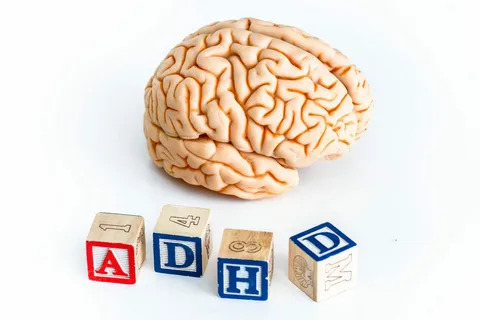Overview
Attention Deficit Hyperactivity Disorder (ADHD) is a neurodevelopmental condition that affects individuals’ ability to focus, control impulses, and regulate activity levels. ADHD medication serves a significant role in controlling symptoms and enhancing daily functioning. However, it’s crucial to evaluate the potential impact of ADHD medication on weight management. This article examines techniques and ideas for those taking ADHD medication to maintain a healthy weight and enjoy a balanced lifestyle.
Understanding the Relationship Between ADHD Medication and Weight
Effects of ADHD Medication on Appetite
ADHD drugs, particularly stimulants like methylphenidate (e.g., Ritalin) and amphetamines (e.g., Adderall), can impact appetite and food intake. Some individuals may report decreased appetite or changes in eating behaviors while taking medication.
Metabolic Changes
Stimulant drugs can also alter metabolism, leading to potential changes in energy expenditure and weight regulation. These metabolic effects may differ across individuals based on factors such as dosage, duration of medicine use, and overall lifestyle choices.
Tips for Healthy Weight Management While Taking ADHD Medication
Maintain a Balanced Diet
Focus on consuming a balanced diet rich in fruits, vegetables, whole grains, lean meats, and healthy fats. Avoid excessive consumption of processed foods, sugary beverages, and high-calorie snacks. Be cautious of portion sizes and aim for regular meals and snacks throughout the day to ensure consistent energy levels.
Stay Hydrated
Drink a proper amount of water throughout the day to stay hydrated. Limit intake of sugary drinks and go for water, herbal teas, or infused water for hydration without added calories.
Regular Physical Activity
Engage in regular physical activity to improve general health and weight management. Choose activities you enjoy, such as walking, cycling, swimming, or yoga. Aim for at least 30 minutes of moderate to intense activity most days of the week.
Monitor Medication Effects
Be conscious of how ADHD medication affects your appetite, energy levels, and metabolism. Keep track of any changes in eating habits or weight swings and discuss them with your healthcare physician as appropriate.
Nutritional Strategies for Individuals Taking ADHD Medication
Include Nutrient-Dense Foods
Incorporate nutrient-dense foods into your diet, such as leafy greens, colorful vegetables, whole grains, legumes, nuts, and seeds. These foods include critical vitamins, minerals, fiber, and antioxidants to support general health and well-being.
Balance Carbohydrates and Protein
Aim for a balanced amount of carbohydrates and protein in your meals and snacks. Pairing carbohydrates with protein can help balance blood sugar levels and induce satiety. Examples include whole grain toast with nut butter, yogurt with fruit, or grilled chicken with quinoa and vegetables.
Limit Added Sugars and Processed Foods
Minimize consumption of foods heavy in added sugars, processed carbs, and harmful fats. Choose natural, unadulterated meals wherever possible and check labels to avoid hidden sugars and artificial substances.
Behavioral Strategies for Healthy Eating Habits
Practice Mindful Eating
Be attentive of your eating habits by paying attention to hunger indicators, eating deliberately, and appreciating each meal. Avoid distractions such as watching TV or using electronic gadgets while eating, as this can lead to mindless overeating.
Plan and Prepare Meals
Plan your meals and snacks in advance to ensure they correspond with your dietary goals. Prepare healthy options ahead of time, such as pre-cut fruits and vegetables, homemade soups, and portioned snacks, to avoid impulsive eating decisions.
Seeking Expert Advice
Consult a Registered Dietitian
Consider talking with a qualified dietitian who specializes in ADHD and nutrition. A dietitian can provide tailored counsel, meal plans, and methods to maintain healthy eating habits while taking ADHD medication.
Regular Health Checkups
Schedule regular health visits with your healthcare practitioner to monitor your overall health, medication efficacy, and any potential side effects. Discuss any concerns or changes relating to weight, hunger, or metabolism during these meetings.
In summary
Maintaining a healthy weight and lifestyle while taking ADHD medication is attainable with conscious eating, regular physical activity, and expert supervision. By adopting healthy eating habits, staying active, monitoring medication effects, and getting help from healthcare specialists as needed, individuals with ADHD can enhance their well-being and manage their symptoms efficiently. Balancing medication treatment with a focus on diet and self-care is crucial to promoting a healthy and satisfying life with ADHD.



